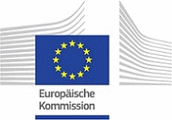Clear the stage for Bad Ischl Salzkammergut as European Capital of Culture. EU Ambassador Martin Selmayr at today’s opening: “Culture builds emotional bridges.”
Vienna (OTS) – In 2024, Austria will once again be home to a European Capital of Culture: 23 municipalities in Upper Austria and Styria have secured this year’s title and EU funding of 1.5 million euros as the Bad Ischl Salzkammergut region – as have Tartu in Estonia and Bodø in Norway.
The celebratory opening ceremony will take place in Bad Ischl today. EU Ambassador Martin Selmayr, who arrived together with Ukrainian Ambassador Vasyl Khymynets, will be there. “I warmly congratulate Bad Ischl Salzkammergut,” says Selmayr. “The European motto ‘united in diversity’ is reflected in the cultural richness of our continent. The ‘European Capital of Culture’ initiative brings this wealth to the fore – especially the hidden treasures,” adds the EU ambassador. “As a cultural capital, Bad Ischl Salzkammergut is a European meeting place. Culture builds emotional bridges and connects people. And in the European election year of 2024, it is more important than ever to come into contact with one another.”
Third European Capital of Culture in Austria
The positive economic and social consequences of the title of Capital of Culture are of course not limited to the year in which the event is held. “Impulses with long-term effects are being initiated. Just as Bad Ischl still has a reputation as an imperial city today, the title of Capital of Culture will continue to have an impact for many years to come,” Selmayr is convinced. “Graz and Linz, which were European Capitals of Culture in 2003 and 2009 respectively, also had this experience.”
In addition to Bad Ischl Salzkammergut, Dornbirn and St. Pölten have also applied to become European Capital of Culture for 2024 and presented their concepts to an independent jury in a two-stage selection process. “The two cities have developed great initiatives. I hope that they were able to implement these and get a lot of positive things out of the application process, even if it wasn’t crowned with the title,” emphasizes Selmayr.
Premiere in Athens in 1985
The title of “European Capital of Culture” was created at the initiative of the Greek Minister of Culture Melina Mercouri. Athens started in 1985, and around 70 other cities have followed to date. To be selected, they had to create a cultural program with a strong European dimension, encouraging the active participation of residents and communities.
The cultural capitals of the next few years have already been decided: in 2025 they will be Chemnitz in Germany and Nova Gorica in Slovenia – together with Gorizia (Görz) in Italy. In 2026 it will be the turn of Oulu in Finland and Trenčín in Slovakia. Every year two cities from the EU member states share the title. EU accession candidates and countries from the European Economic Area (EEA) or the European Free Trade Association (EFTA) are also invited to apply every three years on average.
More pictures in the APA-Fotogalerie
Questions & Contact:
Representation of the European Commission in Austria
Sabine Berger
Head of Press & Social Media
+43 676 606 2132
Sabine.Berger@ec.europa.eu
